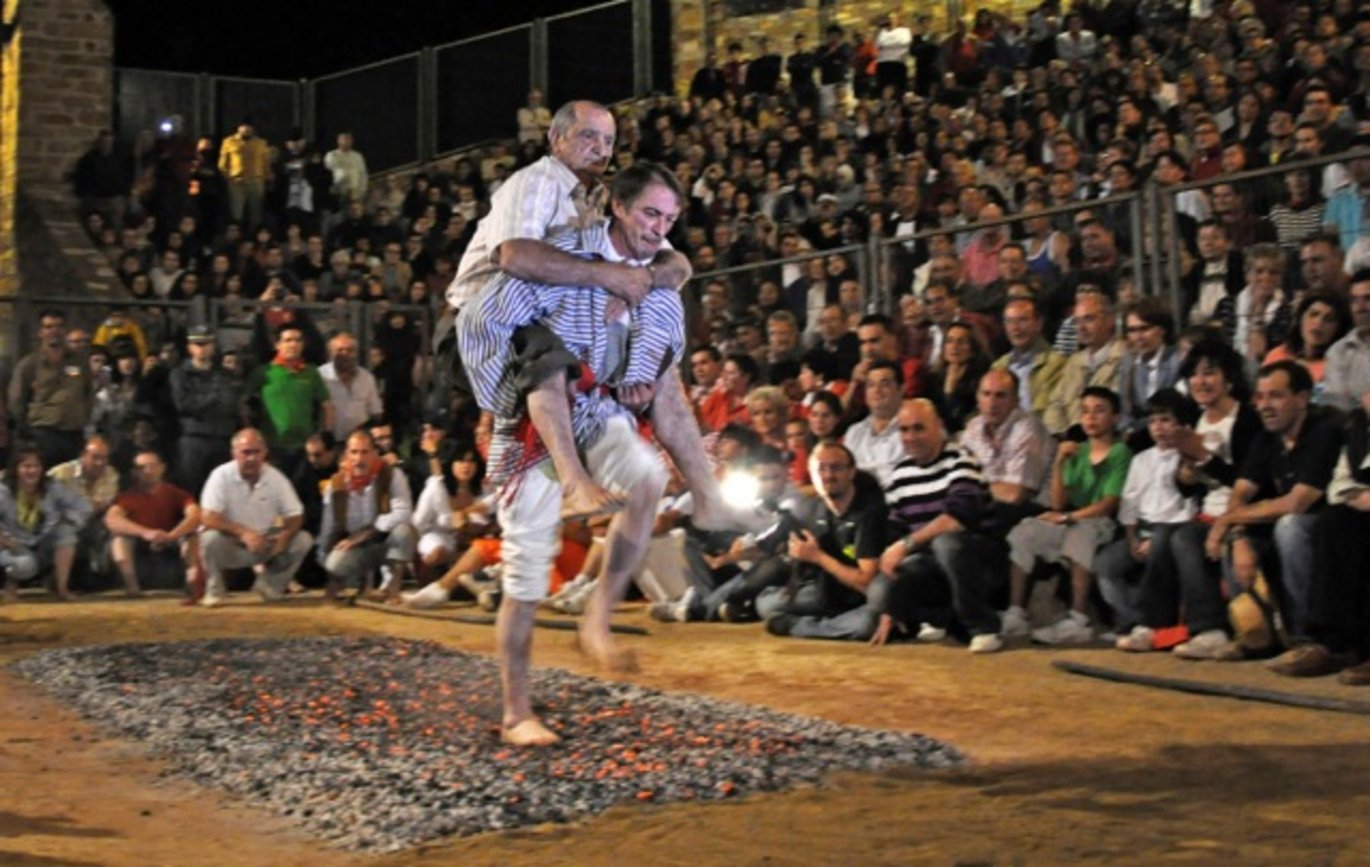Fire-walkers and Field Work
Frontiers in Psychology just published a new article based on groundbreaking field studies in high-intensity rituals by an international team of researchers, headed by IMC researcher Dimitris Xygalatas. Here we look at the research behind the article in a talk with Dimitris about the challenges of field studies.


"Images from a jointly-arousing collective ritual reveal affective polarization", reads the headline of the Frontiers article. Behind this headline lies several years of hard work in the field by Dimitris Xygalatas and his five co-authors. Work which has resulted in several other published papers, some of them quoted by mainstream media like The New York Times, BBC and Discovery Channel.
Images of Fire-walkers
"The main theme of my research, ever since I was a doctoral student, has focused on the effects of participation in high-intensity rituals on social dynamics", says Dimitris Xygalatas. "Some years ago, and while I was doing fieldwork on fire-walking rituals in southern Europe, my colleagues and I received funding from the Interacting Minds project – out of which the Interacting Minds Centre emerged – to conduct a large expedition to my field site in Spain with an international team of researchers. That expedition produced a series of ground-breaking studies that were published in a series of articles across various disciplines. Based on two years of intermitted ethnographic fieldwork which I conducted in the area, and two extensive weeks of targeted field experiments with our team, we gathered an enormous amount of data, including interviews, archival material, psychometric tests, physiological measurements, and audiovisual recordings. The full analysis of the material took several years, and this is the last and final article in that series of studies. For the study presented in this paper alone, we used 18.900 data points, based independent raters' codings of facial expressions."
The Challenges of Field Work
Field work is very different compared to the sheltered and controlled environment in a lab experiment. And sometimes the challenges are of a more practical sort than the theoretical problems the researchers are trying to solve. Logistics for example. "As this study was part of a large project in which multiple measures were obtained within a short timespan, the most challenging part was logistics", says Dimitris Xygalatas. "Field studies are very different than lab studies, where experimenters can make their own schedules, create their own setting, and tell their subjects what to do. In the field, you cannot manipulate the environment, so you have to find smart ways to work in the real world, and adjust your design accordingly, working around the local ecology. And sure enough, we’ve had to modify several aspects of our design until literally at the last minute in order to address all sorts of problems, ranging from equipment malfunction to uncooperative local officials."

A More Sophisticated Picture
Were any of your findings surprising to you, I asked Dimitris. "Not really", he begins. "Rather than surprising us, the data add nuance to our previous findings on synchronous arousal among performers and spectators of the fire-walking ritual (Konvalinka et al., 2011, Xygalatas et al., 2011). In this study, we found that although this event caused similar patterns of arousal for people involved in different roles, the valence of this arousal differed dramatically."
So, what in particular can we learn from this paper, I probe Xygalatas. The answer comes without hesitation: "Overall, our study makes an important contribution both in the study of large collective events by showing how non-invasive methods for data capture, such as video, may be combined with statistically appropriate models from evolutionary ecology to clarify puzzling and hard-to-access dimensions of the human condition which have long eluded qualitative anthropologists. In addition, it reveals a more sophisticated picture than hitherto assumed with regards to extreme ritual ordeals, and these findings may be extended beyond religious rituals. For example, the prospect that rituals might build communities by disproportionately traumatizing some of the participants may provide some insights about the use of hazing in military and paramilitary organizations, street gangs, or college fraternities."
Back in the Field
Dimitris Xygalatas has little time to read the New Frontiers article himself. He's already out in the field again - and this time even further away than Spain. The Island of Mauritius in The Indian Ocean, to be exact. "My work continues to focus on the social effects of extreme rituals and on exploring new and innovating methodologies to study them", explains Dimitris. "My current field project in Mauritius focuses on costly signalling aspects of extreme rituals by providing precise measurements of the cost of ritual participation and its relation to social hierarchy."
Here back at the IMC we can only look forward to the next paper to emerge from Dimitris and IMC colleague Panos Mitkidis' present field studies in Mauritius - and slightly envy them for the warm and sunny climate of their field!
NB: A link to the full article in Frontiers is included in the links section below



